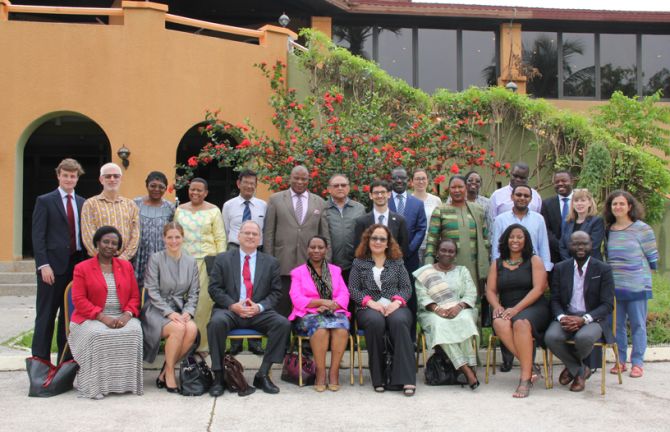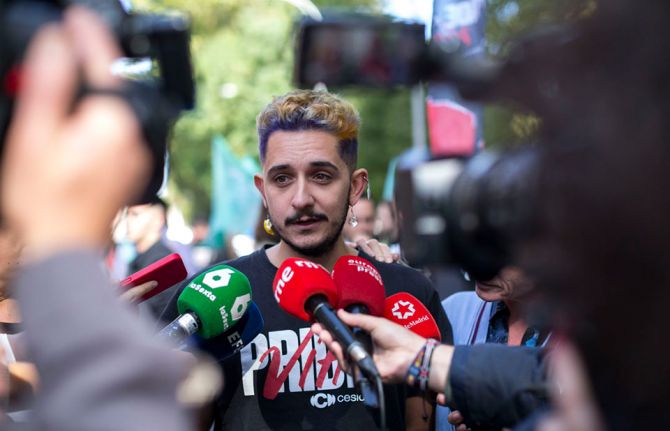

Update
Call to end human rights violations based on sexual orientation and gender identity
07 April 2016
07 April 2016 07 April 2016Human rights experts have called for concerted efforts to end human rights violations based on sexual orientation and gender identity.
A report launched today during the 58th Ordinary Session of the African Commission on Human and Peoples’ Rights, being held in Banjul, Gambia, summarizes a historic dialogue that took place in November 2015 between United Nations human rights experts and representatives of the African Commission on Human and Peoples’ Rights and the Inter-American Commission on Human Rights.
The report, Ending violence and other human rights violations based on sexual orientation and gender identity, highlights grave violations that take place in all regions of the world against lesbian, gay, bisexual, transgender and intersex (LGBTI) people.
The report notes the impact of these abuses on the health of LGBTI people and their access to HIV prevention and care, but also emphasizes positive developments made around the world in protecting the rights of LGBTI people.
In 2014, the African Commission on Human and Peoples’ Rights adopted a resolution calling for the protection of people against violence and other violations on the basis of their real or perceived sexual orientation or gender identity. Commenting on the launch of the report, Pansy Tlakula, Chairperson of the African Commission on Human and Peoples’ Rights, said, “Violence and other human rights violations based on sexual orientation and gender identity constitute universal challenges that require concerted responses by national, regional and United Nations human rights institutions.”
The Inter-American Commission on Human Rights has established a rapporteurship on the rights of LGBTI people. James Cavallaro, President of the Inter-American Commission on Human Rights, highlighted a fundamental element of the work of the Commission. “Bringing the voices of lesbian, gay, bisexual, transgender and intersex people into our work is to challenge the invisibility of the serious human rights violations that they continue to face throughout the Americas and hold States accountable for these violations,” he said.
The United Nations Human Rights Council has passed two resolutions condemning violence and discrimination based on sexual orientation and gender identity. “The dialogue allowed us to share good practices to guide our common struggle to combat impunity and to ensure the protection and realization of the human rights of all individuals, including lesbian, gay, bisexual, transgender and intersex people,” said Christof Heyns, United Nations Special Rapporteur on extrajudicial, summary or arbitrary executions.
The UNAIDS Executive Director, Michel Sidibé, and the United Nations High Commissioner for Human Rights, Zeid Ra’ad Al Hussein, said on the launch of the report, “Ending violence, criminalization, discrimination and other human rights violations against lesbian, gay, bisexual, transgender and intersex people are priorities for our organizations and for the entire United Nations system.”
Civil society organizations have also welcomed the report. “Ongoing collaboration and openness to experience-sharing between regional and international human rights systems reinforces the idea of the universality of human rights, and can only help advance the protection of human rights for everyone, including for LGBTI people,” said Sibongile Ndashe, Executive Director of the Initiative for Strategic Litigation in Africa.



